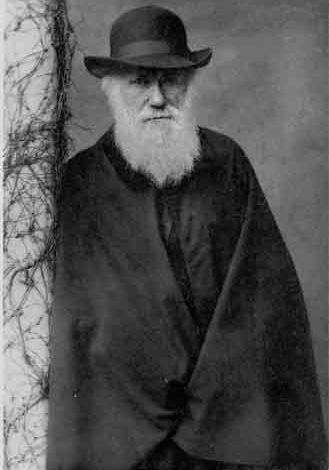Resumo de uma comunicação que irei fazer no Congresso Internacional sobre o Impacto de Darwin na Ciência, na Sociedade e na Cultura (Faculdade de Filosofia de Braga, 10-12 Setembro)
Culture influenced Darwin’s vision of the world and indirectly produced dramatic changes in the scientific discipline of biology. On the other hand, with the development of biology due to Darwin’s contribution, culture changed and its religious dimension is particularly challenged, namely, Christianity and the way we understand God’s interaction with the world. In this communication, considering that a new vision of culture is emerging, a culture of communion, I suggest we may be led to rethink Darwin.
In order to explain his theory, Darwin used several metaphors, which further impacted on the religious worldview and, consequently, on the understanding of divine providence as an important part of our cultural heritage.
Considering this, how should our understanding of divine providence “culturally evolve” taking into account the current evolutionary cultural background? My proposal is: toward a culture of communion as understood in Chiara Lubich, founder of the Focolare Movement which is inspired by what has been called the charism of unity. In light of such understanding, the objective of this paper is to rethink Darwin’s metaphors and explore the implications of this rethinking for the relation between evolution and divine action, within the Christian tradition.
The results of rethinking Darwin’s metaphors emphasize that, influenced by the cultural heritage of his time, Darwin viewed Nature using a “state of war” approach, instead of a more relational approach where everything is in relation with everything else, which is crucial, e.g. in symbiogenesis for understanding evolutionary novelty and the origin of species (Margulis, 1998). When confronted with the teleological nature of Darwin’s metaphorical language, one realizes the purposeful value of randomness, natural selection and time, in the contingency, communion and historical dimensions of the world’s evolutionary reality, leading to what Teilhard de Chardin often emphasized, “true union differentiates”.
Following Lubich’s expression that God loved and, therefore, created (Coda, 1998), could not evolution be understood, through a culture of communion, as the response of a free and autonomous world to this love? In fact, God’s creative and providential presence to the world includes “letting the world be”, its autonomy, rather than exerting a manipulative control over it (Haught, 2007). However, this “letting be” occurs in reciprocity with God loving by creating, and the world loving by evolving. Therefore, because the world is free, concretely, although limited by its conditions of possibility (natural laws), one should not expect this evolutionary response to be a perfect one, opening the possibility for a reinterpretation of the presence of pain, suffering and death in the world. This reinterpretation finds its sense in Jesus crucified and forsaken , who is, according to Lubich, the way to unity and model of a culture of communion (Lubich, 2007).
References
Ayala, F., “Biology precedes, culture transcends: an evolutionist’s view of human nature”, Zygon 33 (1998) 507-523.
Coda, P., “Dio e la creazione”, Nuova Umanità XX (1998) 67-88.
Haught, J., “Darwin and Contemporary Theology”, Worldviews 11 (2007) 44-57.
Lubich, C., “Toward a culture of communion”, speech in “Together for Europe”, Stuttgart, Germany, May 2007.
Margulis, L., Symbiotic planet [a new look at evolution], Massachusetts: Basic Books, 1998.
Pramling, N., “The role of metaphor in Darwin and the implications for teaching evolution”, Science Education, 93 (2008) 535-547.



Boa noite Miguel,
Hoje no jornal do Público é mencionado um estudo encomendado pela Sociedade Bíblica Portuguesa inédito que identifica quem mais lê a Bíblia e por que o faz. Católicos, ateus e agnósticos são quem menos lê.
Quem mais lê segundo o estudo são os protestantes/envangélicos e as testemunhas de Jeová.
83% católicos praticantes,37% católicos não-praticantes,93% protestantes/envangélicos, 100% Testemunhas de Jeová.
Quem mais lê?
Várias vezes ao dia Testemunhas de Jeová,
protestantes / envangélicos com regularidade, não todos os dias.
Católicos ocasionalmente.
Quem tem uma bíblia em casa?
Testemunhas de Jeová – todos têm.
Protestantes/envangélicos – Quase todos.
Católicos praticantes – entre 80%, 90%.
Bom fim de semana,
Manuel Rodrigues
Caro Manuel,
importa mais quem mais lê, ou quem expressa com a vida o que lá vem escrito?
Todos podem ler a bíblia e alguns saber as passagens de cor mais do que outros, mas isso só importa quando o nosso testemunho expressa a vida para além das palavras.
O estudo encomendado entra em conta com estes aspectos? Ou apenas com a leitura?
Cordiais saudações,
Miguel Panão
Boa tarde,
O estudo focava essencialmente a leitura.
Concordo plenamente com as suas observações.
Atenciosamnete,
Manuel Rodrigues
Boa tarde,
“Segundo o Velho Testamento, Caim terá sido o filho primogénito de Adão e Eva, que matou Abel, seu irmão mais novo, num acesso de ciumes, após verificar que Deus mostrara preferência por este. Que Diabo de Deus é este que para enaltecer Abel despreza caim. Nada disto existiu, está claro, são mitos inventados pelo homens…”
José Saramago
Atenciosamente,
Manuel Rodrigues
Caro Manuel,
José Saramago faz uma leitura infantil da Sagrada Escritura e reduz o carácter mitológico do Génesis a um só: o fictício. É lamentável que assim seja vindo que um Nobel da Literatura que foi incapaz de entender a literatura, também na Bíblia, ou que se assume como um radical contra a Igreja ou a Religião para publicitar a sua última obra.
Estaremos perante um homem desesperado?
Cordiais saudações,
Miguel Panão